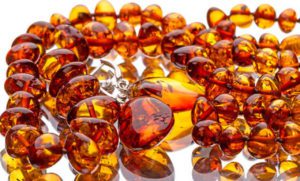
Ukrainian President Volodymyr Zelensky has proposed to punish for amber smuggling with imprisonment from three to seven years and introduce an article on illegal extraction of amber to the Criminal Code of Ukraine.
This is outlined in bill No. 2059 amending the Criminal Code of Ukraine on criminal liability for the illegal extraction of amber or its movement across the customs border of Ukraine registered by the head of state in parliament.
So, it is proposed to introduce Article 240-1 (illegal extraction of amber). This crime is punishable by a fine of 700 to 3,000 tax-free minimum incomes of citizens (1 minimum is UAH 17), or imprisonment for a term from one to three years.
“The sale, acquisition, storage, transfer, transportation, processing of illegally obtained amber shall be punishable by a fine of 3,000 to 10,000 tax-free minimum incomes of citizens, or by imprisonment for a term from three to six years,” the president said in the bill.
The same actions committed with prior conspiracy by a group of persons, either repeatedly or on a large scale, as well as illegal amber extraction committed on the territories or objects of the nature reserve fund, shall be punishable by imprisonment for a term from four to seven years.
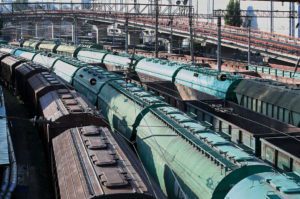
A plan on restructuring of JSC Ukrzaliznytsia, which foresees division of the company into three operators (infrastructure, freight and passenger) and a production block, will be prepared by the end of 2019, Ukrzaliznytsia head Yevhen Kravtsov wrote on Facebook.
“We will fulfill the order of [President of Ukraine] Volodymyr Zelensky in time,” he said.
According to Kravtsov, a gradual plan would become a part of the implementation of the Ukrzaliznytsia’s strategy agreed with the Cabinet of Ministers and approved by the supervisory council in June 2019. After the plan is fulfilled and approved by the supervisory board, Ukrzaliznytsia will begin making certain steps under the control of the government, he added.
“[Infrastructure Minister] Vladyslav Krykliy, [Prime Minister] Oleksiy Honcharuk back European model. The main is that infrastructure remains under state regulation, when passenger and freight carriages are carried under the market conditions,” he said.
As reported, Ukrainian President Volodymyr Zelensky has instructed the Cabinet of Ministers of Ukraine to prepare a plan on restructuring of JSC Ukrzaliznytsia by the end of 2019.
The president appointed Honcharuk and Krykliy responsible for the preparation of the plan.
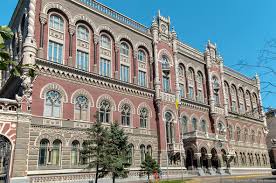
The National Bank of Ukraine has decided from September 6 to lower the refinancing rate to 16.5% per annum from 17% per annum, at which it has been since July 19 of this year.
“The National Bank continues the cycle of easing monetary policy, as it expects inflation to slow to the target of 5%,” the central bank said.
The NBU board noted that internal political risks to reduce inflation to the target weakened with the beginning of work of the Verkhovna Rada of the new convocation and the formation of a new government. According to the regulator, this opens up an opportunity to intensify negotiations with the International Monetary Fund on a new cooperation program.
At the same time, the central bank pointed to the persistence of both internal threats to financial stability (lawsuits around the nationalization of PrivatBank) and external threats – the termination of gas transit from Russia from the beginning of 2020, the intensification of trade wars and turbulence in the global financial markets, the escalation of the military conflict and new trade restrictions of the Russian Federation.
As reported, on April 26, the NBU lowered the refinancing rate to 17.5% per annum from the level of 18% per annum, at which it had been kept since the beginning of September.
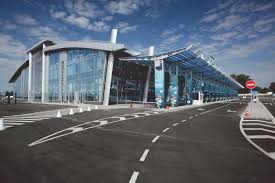
Kyiv Zhuliany International Airport in January-August 2019 served 1.856 million passengers, which is 0.1% less than in January-August 2018.
According to statistics released by the airport’s press service, the number of passengers served on international flights for the eight months amounted to 1.808 million, on domestic routes some 47,900d.
The number of flights in January-August 2019 amounted to 19,663 for arrival/departure, which is 2.2% more than in the same period in 2018, including 16,491 international flights and 3,172 domestic.
The most popular international destinations for the indicated period were Minsk (Belarus), Warsaw (Poland), Sharm el-Sheikh (Egypt), Rome (Italy), Ankara (Turkey), Vienna (Austria), Berlin (Germany), internal – Odesa, Zaporizhia, and Lviv.
In August 2019, the airport served 265,700 passengers, which is 25.8% less than in August 2018. The number of passengers served on international flights amounted to 259,000, domestic some 6,700.
The number of flights in August amounted to 2,655 for arrival/departure, which is 18.5% less than in the same period in 2018, of which 2,245 international and 410 domestic.

The Cabinet of Ministers of Ukraine on Wednesday dismissed 36 deputy ministers and first deputy ministers from 12 ministries. In particular, Olha Trofimtseva, Viktor Sheremeta, Volodymyr Topchiy and Olena Kovalova were dismissed from the posts of deputy minister of agricultural policy and food.
Mykola Movchan, Yaroslav Voitovych, Mykola Danevych were dismissed from the posts of deputy ministers of sports, and Ihor Hotsul from the post of first deputy minister.
Yuriy Rybachuk and Tamara Mazur lost the posts of deputy ministers of culture.
Dmytro Zolotukhin was dismissed from the post of deputy minister of information policy, and Emine Dzhaparova was dismissed from the post of first deputy minister.
Roman Hreba and Maksym Strikha lost the positions of deputy ministers of education and science.
Ihor Pavlovsky was dismissed from the post of deputy minister of defense.
Svitlana Hlushchenko, Iryna Sadovska, Serhiy Petukhov, Ivanna Smachylo, Ivan Lishchyna, Denys Chernyshov were dismissed from the posts of deputy minister of justice, and Olena Sukmanova was removed from the post of first deputy minister.
Deputy ministers of health Pavlo Kovtonyuk and Oleksandr Linsky, as well as first deputy minister Ulana Suprun, were also dismissed.
Mykhailo Tytarchuk and Yuriy Brovchenko were dismissed from the posts of deputy minister of economic development and trade.
Lev Partskhaladze and Taras Tokarsky lost the positions of deputy ministers of regional development, construction, housing and utilities economy.
Hryhoriy Galagan was dismissed from the post of first deputy minister of veterans.
Deputy ministers for occupied territories and internally displaced persons Viktoria Voronina, Yuriy Hrymchak and Heorhiy Tuka also lost their posts. First deputy minister Yusuf Kurkchi was also fired.
Oleksandr Churkin was dismissed from the post of deputy minister of social policy.
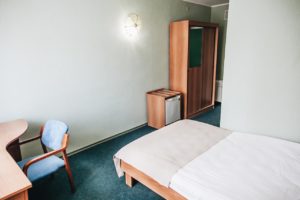
Reikartz Hotel Management LLC (Kyiv), the managing company of the national hotel chain Reikartz Hotel Group, has signed an agreement on management of Rishelyevsky apartment hotel in Kherson on 40 Rishelyevska Street. As the hotel operator reported on its website, the apart-hotel will join the chain and since September 1, 2019 will start its work under the brand Raziotel Kherson.
A hotel room capacity is 50 rooms of various categories. Infrastructure includes a conference hall that can sit 100 persons, a lobby bar, and an indoor parking under guard.
Reikartz Hotel Management was set up in 2008.
According to the Unified Register of Legal Entities and Individual Entrepreneurs as of August 9, 2019, the participants of the company are Volodymyr Kashutin (Lviv) with 99.89% of shares, Identex-Ukraine LLC with 0.1%. The final beneficiaries, apart from Kashutin, are Leonid Lavrentyev and Timur Rodionov.
A charter capital of the company is UAH 60,900.
Reikartz began its activity in the field of hotel services in Ukraine in 2003 after a group of Belgian architects, led by Francois Ryckaerts, had acquired an old mansion in Drukarska Street in the center of Lviv.
Reikartz Hotel Group unites 42 hotels in Ukraine and two in Sweden and Germany.